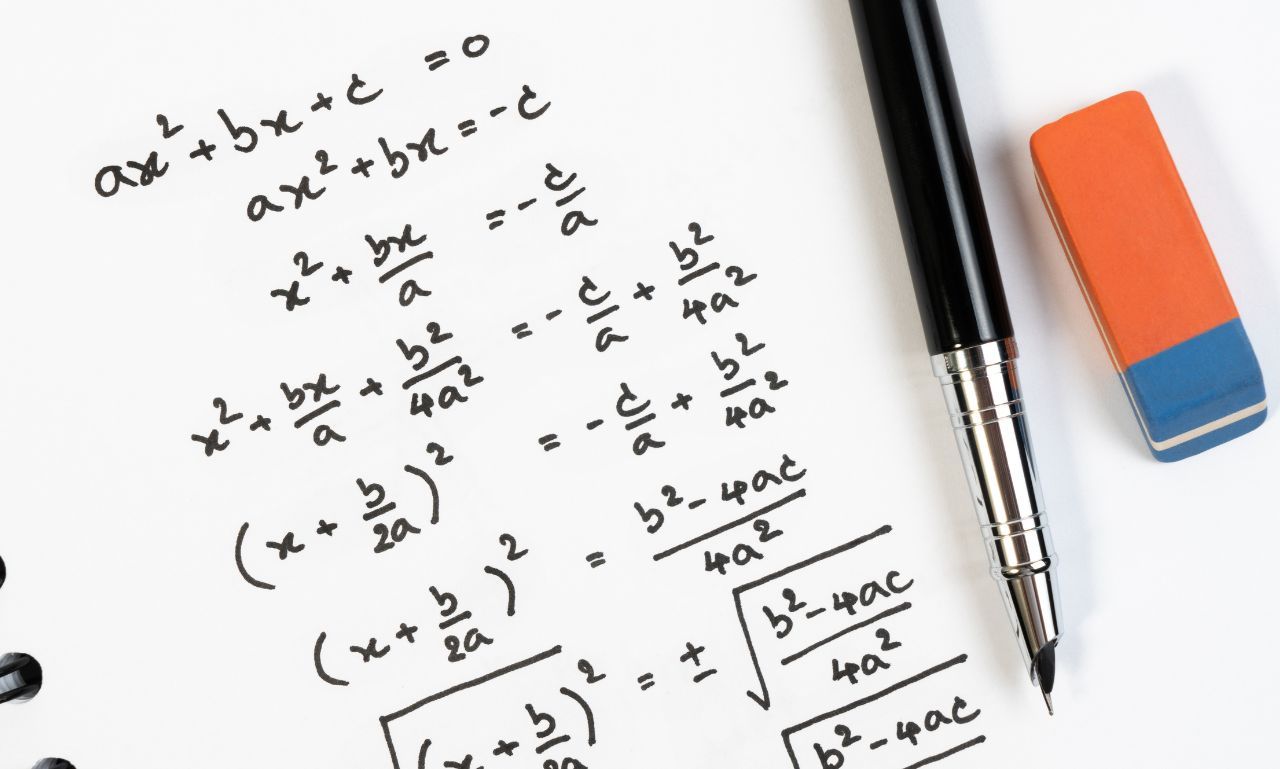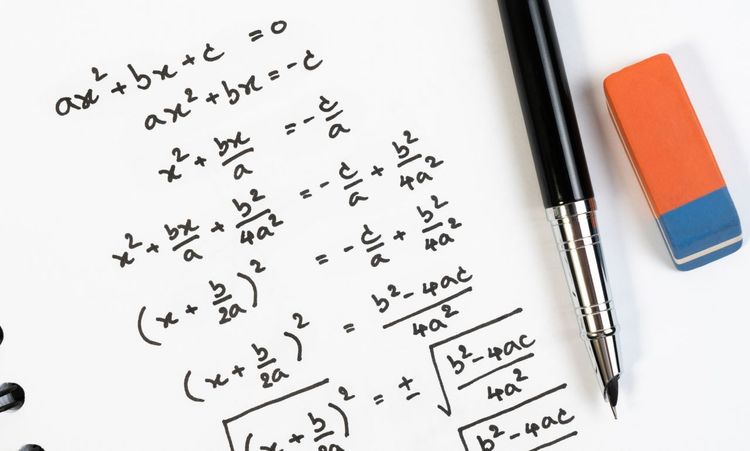Math tests can be intimidating, but they don't have to be. Whether you're preparing for a high school algebra exam or a college-level calculus test, the right strategies can make all the difference. In this article, I'll share proven techniques, personal experiences, and practical tips to help you ace your next math test. From early preparation to managing test-day stress, we'll cover everything you need to know to succeed.
How Early Preparation Can Help You Do Well on a Math Test
Preparation is key to doing well on any math test, but early preparation can make a difference. From my experience, starting your review weeks ahead of time helps you avoid cramming at the last minute, which often leads to unnecessary stress.
Starting early allows you to:
- Master key concepts: You'll have time to identify areas where you're struggling and give those topics extra attention.
- Build confidence: The more you study in advance, the less you'll panic before the test.
- Reinforce understanding: Rather than simply memorizing answers, you'll have time to understand the concepts and the “why” behind the formulas.
Benefits of Practice Tests

Practice tests are a game-changer. They simulate the actual testing situation, helping you get comfortable with the format and time limits. While preparing for my SATs, I took dozens of practice tests. At first, I struggled with time management, but after a few attempts, I learned to pace myself. By the time the test rolled around, I felt confident and ready.
Practice tests also help you identify common math questions and patterns. For example, if you notice that quadratic equations appear frequently, you can focus more on mastering that topic.
Forming Study Groups for Collaborative Learning
Forming a study group isn’t just about having people around to chat with—it’s about mutual support and knowledge-sharing. In my group, we'd tackle problems together, share strategies, and explain concepts to one another. Teaching an idea to someone else is often the best way to solidify your understanding. That’s why study groups are so effective!
Benefits of a Study Group
- Collaborative problem-solving: You might be stumped by a particular problem, but your study buddy might have a fresh perspective. When we all worked together, we'd bounce ideas off each other, which helped us solve problems faster and more efficiently.
- Accountability: Knowing you've committed to studying with others keeps you on track. Many nights, I was tempted to put off studying, but I knew that my study group depended on me to show up.
- Mutual support: Math can be stressful, but it's always helpful to have someone by your side who can offer encouragement and advice. We'd share tips, resources, and jokes to keep things light and fun.
Understanding the Test Format and Directions
Before you even start studying, make sure you understand the test format. Is it multiple-choice? Short answer? Will you need to show your work? For example, practice writing out each step if the test requires you to show your work. If it's a timed test, work on solving problems quickly and accurately.
Decoding Math Vocabulary and Key Concepts

Math has its language, and understanding the vocabulary is crucial. Terms like "coefficient," "derivative," or "hypotenuse" might sound intimidating, but once you break them down, they're manageable.
I remember struggling with the term "asymptote" in my calculus class. It wasn't until my professor explained it using a real-world example (like the speed of a car approaching but never reaching zero) that it finally clicked. Don't be afraid to ask questions or look up explanations online.
Misunderstandings and Poor Handwriting
One area where many students trip up is misunderstandings—whether from unclear handwriting, rushed notes, or missed steps in problem-solving. I've made this mistake before, rushing through my work only to realize that my handwriting was illegible or missed a key step.
Make sure that:
- Write clearly and neatly: Always aim for legibility. When you write neatly, you reduce the risk of misreading your work, which can lead to careless errors.
- Show your work: Even if you're confident about an answer, showing all your steps helps you avoid mistakes and earn you partial credit if you get something wrong.
Managing Math Anxiety Before the Test
Math anxiety is real, and it's something that many students struggle with.
Here are a few strategies that work:
Deep breathing: This entails a few deep breaths before entering the test to help relax both the mind and body from stress for better concentration.
Positive affirmations: I have prepared; I have studied, and I've practiced, and I can do this.
Visualization: Visualize yourself effectively solving the problems on the test. It would then make you confident about the test.
Developing Coping Strategies for Test-Day Stress
Deep breathing, positive affirmations, and visualization techniques can help calm your nerves. Before a big test, visualize yourself solving problems confidently and efficiently. It might sound silly, but it works.
Another strategy is to focus on what you can control. Instead of worrying about the difficulty of the test, concentrate on your preparation. Remind yourself that you've put in the work and are ready to tackle whatever comes your way.
Implementing Smart Techniques for Maximum Score
What To Do If You Get Stuck?
It's normal to get stuck on a problem during a test. When this happens, don't panic. Skip the question and come back to it later. Solving other problems can jog your memory or give you a fresh perspective.
Writing down what I know about the problem can help me determine the next steps. Even if I don't arrive at the complete answer, showing my thought process can earn me partial credit.
Fuel Your Brain for Success
Your brain needs fuel to function at its best. Avoid junk foods and choose healthy options like nuts, fruits, and plenty of water. I always carry a water bottle and a small snack to my exams. It keeps me hydrated and focused.
Effective Study Techniques to Master Math
Active Learning Beats Passive Reading
Passively reading through your notes will not do. Instead, engage in active learning by solving problems, teaching the material to someone else, or creating flashcards.
I'm a big fan of flashcards for memorizing formulas and key concepts. They're portable, easy to use, and effective. Plus, they're a great way to review during downtime, like waiting for a bus or standing in line.
Leverage Online Tools
There are countless online resources to help you master math. Websites like Khan Academy offer tutorials, practice problems, and step-by-step solutions.
Tackling Different Math Topics
Different math topics require different approaches. For algebra, stress the solution of equations and understanding of variables; for geometry, practice visualizing shapes and applying theorems. In trigonometry, too, at first frustrating, I started using examples in 'real life': calculating the height of a tree using angles. Applying math in real-life situations made it so much easier to grasp.
Overcoming Bad Study Habits
Poor study habits can take the form of procrastination or multitasking. Identify your weaknesses and work on improving them.
I was procrastinating a lot. I would say to myself, "I will study later," but later, I never showed up. So, to solve this problem, I started using a timer: 25 minutes of studying and 5 minutes of break. This technique, known as the Pomodoro method, helped me stay focused and productive.
Last-Minute Test-Day Preparation

Even with early preparation, last-minute reviews can be helpful. Go over key formulas, review your notes, and solve a few practice problems.
I like to create a "cheat sheet" with all the essential formulas and concepts. Even if I can't bring it to the exam, writing it down helps reinforce my memory.
Conclusion
Preparation, practice, and an effective mindset can get you much better results than relying on ability. Start early and use proper techniques to study; don't let anxiety be the obstacle in reaching your target score. After all, mistakes present opportunities for growth and further development. You can ace that math test if you follow some useful tips which can help not only in succeeding but also give valuable skills to further courses in academics and real life.




